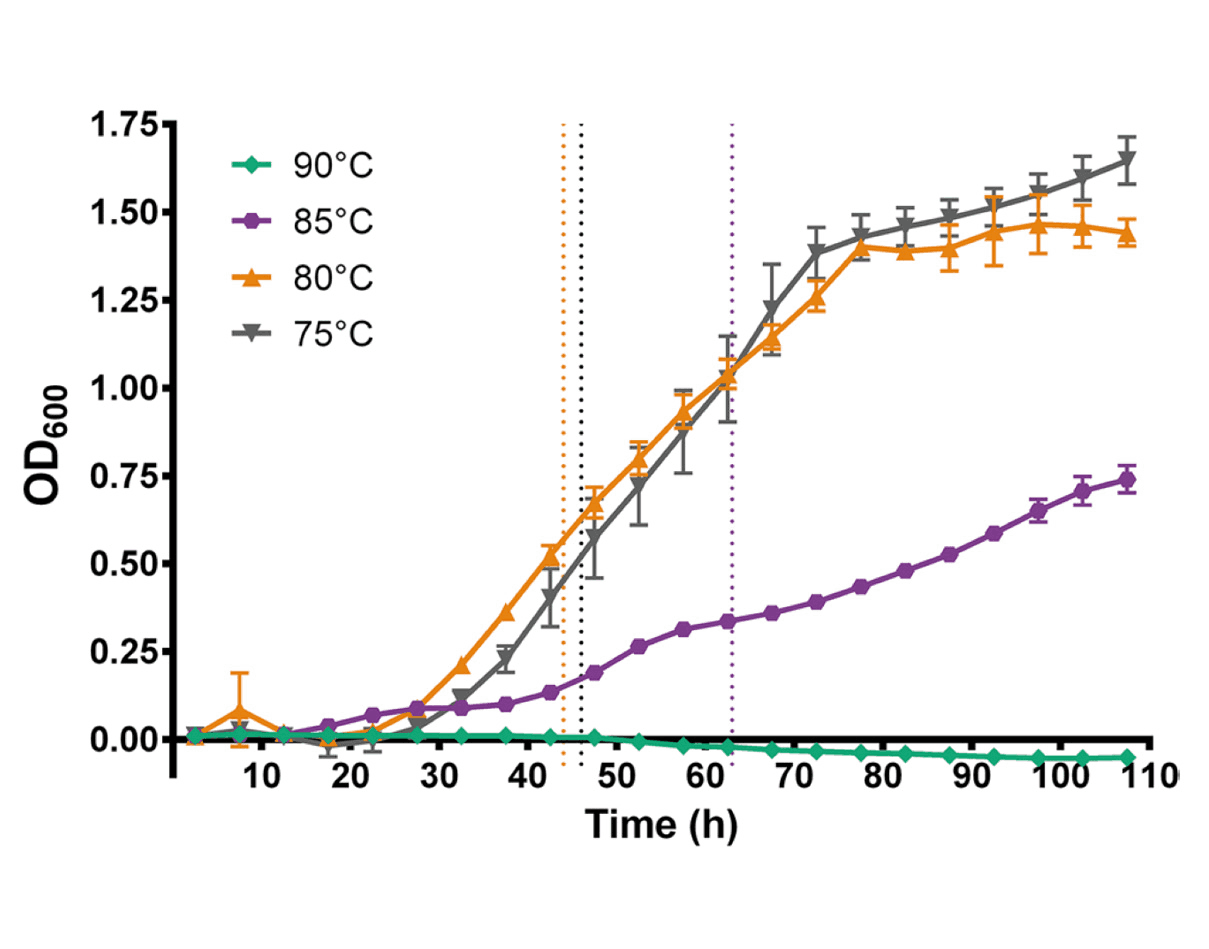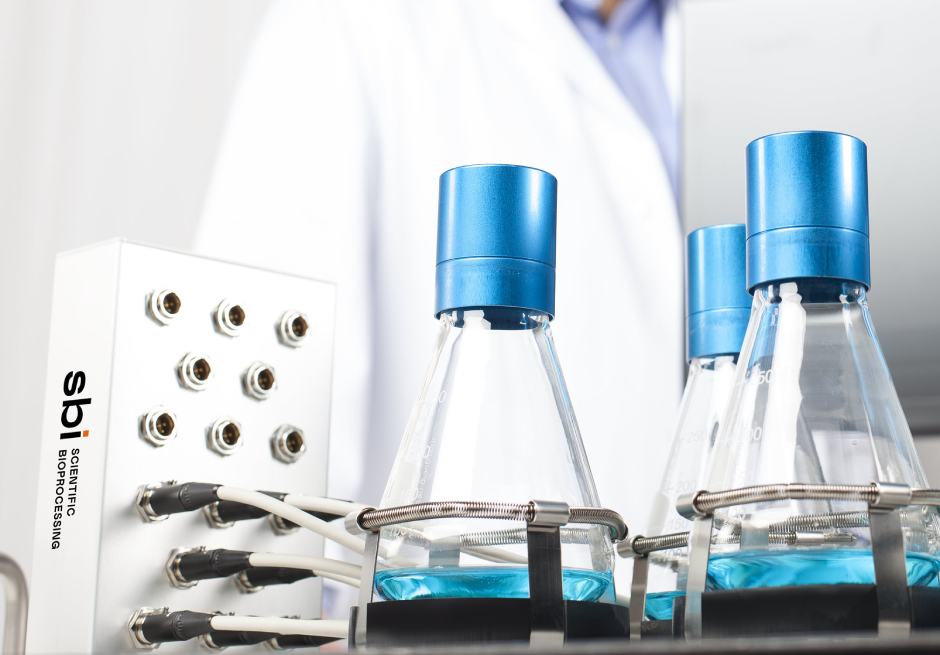Customer Success Story
Using The Cell Growth Quantifier (CGQ) For Thermophilic Organisms
Prof. Dr. ir. Eveline Peeters (Vrije Universiteit Brussel, Belgium)
Background
The crenarchaeon Sulfolobus acidocaldarius, growing optimally at temperatures between 75 and 80 °C, thrives in volcanic hot spring habitats that are typified by large temperature gradients, which impose frequent temperature stresses on the cells. Here, we studied the physiological consequences of continuous high-temperature stress and rapid heat shock for S. acidocaldarius. Growth experiments demonstrate that temperatures of 85 °C and higher result in a decreased growth rate:
 Fig. 1 Growth curves of S. acidocaldarius MW001 in basic Brock medium supplemented with 0.2% sucrose, 0.1% NZ-amine and 20 μg/mL uracil at four different growth temperatures (75 °C, 80 °C, 85 °C and 90 °C) as measured by the aquila biolabs’ Cell Growth Quantifier (CGQ).
Fig. 1 Growth curves of S. acidocaldarius MW001 in basic Brock medium supplemented with 0.2% sucrose, 0.1% NZ-amine and 20 μg/mL uracil at four different growth temperatures (75 °C, 80 °C, 85 °C and 90 °C) as measured by the aquila biolabs’ Cell Growth Quantifier (CGQ).

Testimonial
“By using the Cell Growth Quantifier (CGQ), we were able to get growth data in an unmatched frequency without manual sampling. This greatly facilitated growth experiments with Sulfolobus in shake flasks and generated more reliable data given that the incubator remains closed and the temperature stays constant. Also, we’re honestly impressed by the robustness of the CGQ as we are able to use the system for extended periods of time (multiple days) at temperatures as high as 90°C! We are also very satisfied about the customer service provided by aquila biolabs: they really thought along with us to adapt the system for monitoring the growth of (hyper-)thermophiles.”
Prof. Dr. ir. Eveline Peeters (Vrije Universiteit Brussel)